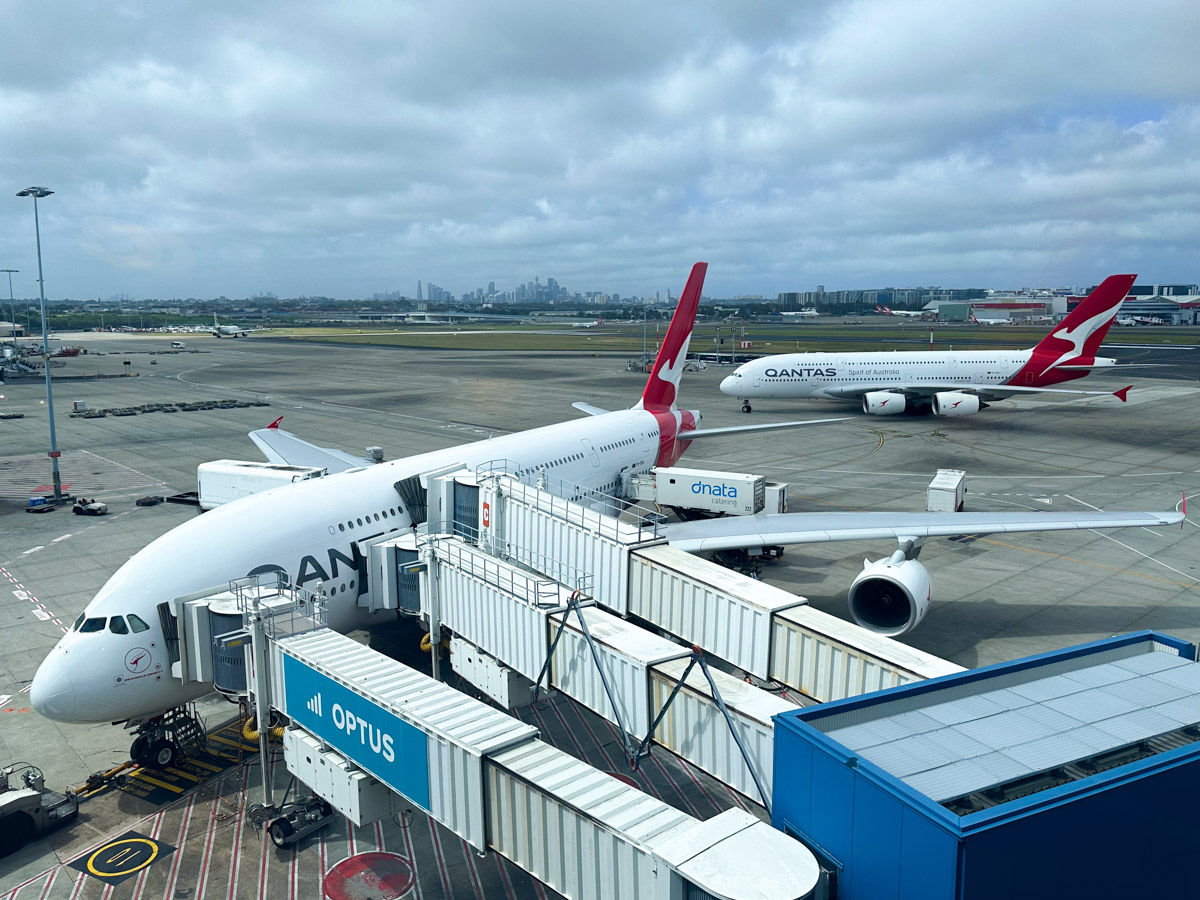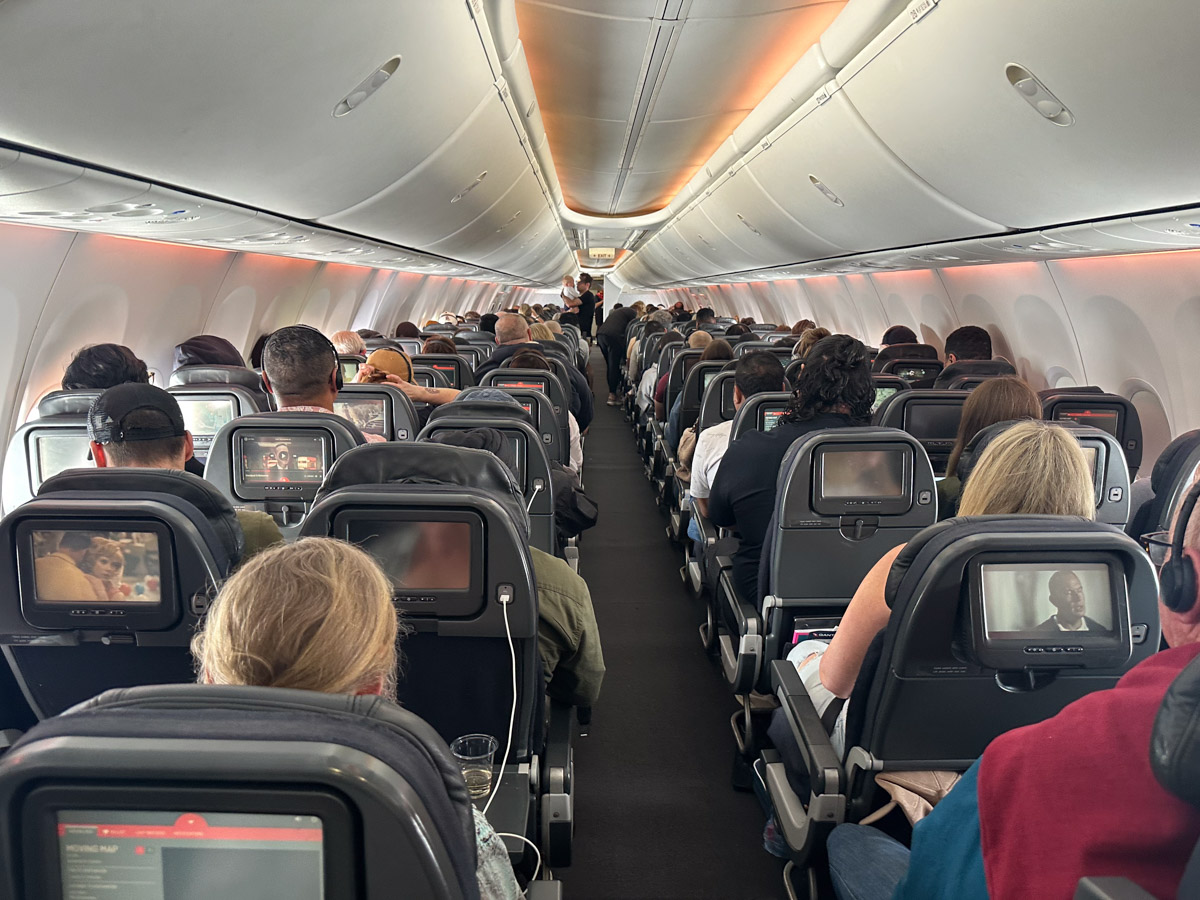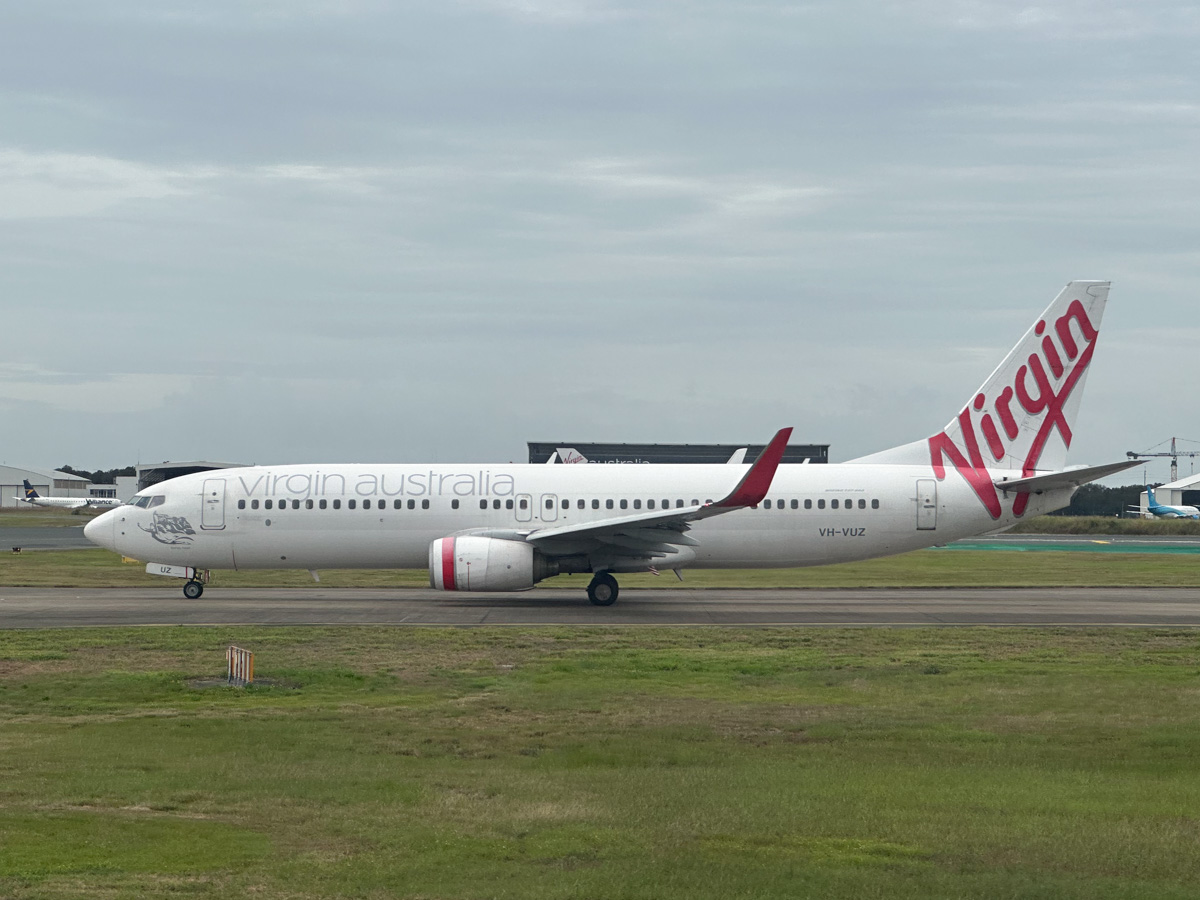Opinion: Why Qantas Shouldn’t Give Status Based on Spend

In a few months, Virgin Australia will change its frequent flyer program to award status credits based on the cost of your ticket, rather than the distance you fly and the type of fare you book.
In this opinion piece, I explore the pros & cons of Qantas going down the same path… and explain why I think they probably shouldn’t.
Virgin Australia is not the only airline moving in this direction
While Virgin’s is quite a radical move for the Australian market, other airlines around the world have already made similar changes in recent years.
Most US airlines already tie your status tier directly to the amount you spend. In fact, American Airlines went a step further in 2022 with its AAdvantage program. American now awards status based on how many miles you earn – including from credit card transactions and shopping.
Alaska Airlines, also part of the Oneworld alliance, has hinted that it intends to do the same in the near future. And to the surprise (and horror) of many, British Airways announced last month that it too will switch to spend-based status qualification in April 2025.
Finnair already made this change last year.

Given this trend, it’s no surprise that some people are now asking if Qantas might also be heading down the path of giving status credits based purely on the cost of your ticket.
One sign of this is a recent survey where Qantas asked its frequent flyers for feedback directly about this.
For the record, I don’t believe Qantas is actively planning to do this… yet. There’s a big difference between simply conducting market research and actually intending to do something. For all we know, the survey results showed that 95% of frequent flyers hate the idea. But I do think it’s probably something that’s being discussed – at the very least in passing – at Qantas HQ.
The reasons to award status based on spend
The main argument in favour of spend-based status is fairly obvious. Airlines would argue that they want to reward the customers who spend the most money with them. On the surface, this seems logical.
Some airlines have also claimed that they don’t want to make status too cheap or easy to earn, because that dilutes the benefits they can provide.
I’ve also seen airlines argue that giving status based on spend is more simple for members to understand. (The upshot, if the spend targets are easy to calculate but are also too high, is that some customers may be put off entirely from even trying.)
Finally, there’s a small proportion of frequent flyers, particularly those in regional locations, who would benefit from revenue-based status earn because they often pay a lot of money for Economy tickets on short flights that earn relatively few status credits under the current system.

That said, if Qantas changed its system, pretty much every FIFO mining worker in the country would quickly attain Platinum One status! As one AFF member points out:
People in the Pilbara will be laughing, imagine how many SC they’ll get for their $900 one way ticket to PER!
The arguments against spend-based status qualification
Despite the few advantages, I would argue that adding a minimum spend requirement does not make the program more attractive nor rewarding. Quite the opposite, in fact.
Status credits are already a good proxy for the amount of money you’ve spent
Firstly, I would point out that Qantas already does effectively award status credits based on how much you spend. It’s not exact, but the existing status credit earning tables are already a fairly good proxy for the cost of your ticket. Longer flights and more expensive ticket types earn more status credits, while shorter flights in cheaper fare categories earn less.
Since the infamous “simpler and fairer” changes of 2014, the Qantas Frequent Flyer program also already rewards members who choose to fly Qantas or Jetstar with a higher earning rate. The program already gives fewer points and status credits when you fly Oneworld partner airlines, especially on routes where Qantas offers a competing service. This reflects the reduced amount of revenue that Qantas earns when you fly a partner airline, while encouraging members to choose a Qantas Group service.

With such a carefully designed system already in place, I would question what Qantas would actually achieve by awarding status credits purely based on spend. Other than to annoy its members.
As one AFF member wrote on our forum:
I don’t think QF really needs to [do this], it’s already managed to constrain partner earn on many routes, with some partner J earning as Y, and for its own services it has so many sub categories of cabin that’s basically achieved spend based status already.
Spend requirements are not necessarily simpler
I would also question whether giving status credits based on spend is actually simpler for members.
Currently, for example, I know that I’ll earn 20 status credits for a one-way Economy Flex ticket from Melbourne to Sydney. It takes 1,200 status credits to renew Platinum status, so I know that I’ll achieve that goal if I take 30 annual return trips on this route on Economy Flex fares. That’s predictable and easy to understand.

If status credits were based on spend, I would need to calculate exactly what I would earn for each flight – which could be a different amount every time as airfares fluctuate. Without a seriously good spreadsheet, it could become quite difficult to keep track of everything. And that’s assuming I knew the exact cost of every ticket, which is not always the case for business travellers on corporate bookings.
Meanwhile, when travelling on partner airlines, Qantas probably would not know how much I’ve spent on my ticket. So, it would either need to keep the zone-based earning tables for partner airlines or come up with some other sort of complicated system.
In any case, the amount of money somebody has spent doesn’t necessarily translate to profitability. Airlines typically operate on thin margins, but some types of bookings have much better margins than others. The current status credit system arguably does a better job of rewarding flyers who book the types of tickets that are more profitable for airlines.
It sucks the fun “gamification” element out of the loyalty program
The main reason I think tying status directly to spend would be a bad idea is that it would remove the “gamification” element out of the program. For better or worse, Qantas Frequent Flyer is currently hugely successful at swaying people to book unnecessary flights, and to choose Qantas for those flights.
People love to game the system and to feel like they’re “winning” at it. They engage with the program because it’s fun. With the existing status credit system, some people spend hours researching and comparing the best Qantas status runs – especially when there is a Double Status Credits offer running!
To give just one example, a few months ago I was sitting in the Auckland First Lounge on a Sunday afternoon. Several of the people around me were talking about how they had flown to Auckland for a status run in order to renew their Platinum status. They’d even paid for Business Class tickets.
On the face of it, this is absurd. But it demonstrates the power of Qantas’ loyalty program to persuade people to spend thousands of dollars on flights they would not have otherwise.

Make status purely spend-based and that gamification, which Qantas makes a lot of extra money from, goes away. The program would become a lot more transactional. Those people who like the “game” element might move their business to another program.
There’s also another unintended consequence here for airlines. Ironically, when frequent flyer programs go down the spending path, the best “sweet spots” for earning status credits often become flights on partner airlines. This is what Qantas actually wants to disincentivise!
On this topic, one AFF member commented:
I would probably never fly Qantas Internationally again if they removed the loyalty incentives.
Why I ditched United’s frequent flyer program
I was a Gold frequent flyer with United Airlines and used United MileagePlus as my main Star Alliance program for five years. But United kept changing its status qualification requirements almost every year, making it more difficult to earn status and eventually removing the waiver of the minimum spend requirement for non-US residents.
Each time United changed its loyalty program rules, I grew less and less engaged. But the final nail in the coffin was in 2022, when I flew United from Washington DC to Los Angeles as part of a Lufthansa round-the-world ticket.
I spent several hours trying to work out how many Premier Qualifying Points I would earn for that flight, and even called United, yet I still couldn’t work it out. Under United’s system, United flights should earn based on the cost of the ticket. But because I didn’t buy the ticket from United, and this flight was part of a multi-city trip including flights on multiple airlines, I had no idea what (or even if) it would earn.
I ended up just crediting that flight to Velocity. And it was the moment I decided not to bother renewing my United status for any further years. I now use Turkish Airlines Miles&Smiles as my main Star Alliance program.

Qantas already rewards members for earning points with program partners
Under a different system, Qantas could create new ways to earn status credits that don’t involve flying at all. For example, it could award status based on the number of points you earn. After all, many airlines make more profit from selling points to third parties than they do flying planes.
But Qantas already does a fantastic job of encouraging members to earn points on the ground through Points Club, which launched in 2020. As a reward for earning lots of points with third parties, Qantas lets members earn status credits on Classic Reward bookings (but only on Qantas flights, which is smart). Points Club Plus members can also get a status credit rollover each year.
Qantas doesn’t need to change this system. It already works well as designed.
Would frequent flyers be better off under a spend-based status program?
At the end of the day, most frequent flyers would probably be worse off if Qantas redesigned its system. At least, they would if the new system looked anything like Virgin Australia’s.
In a recent poll, 73% of AFF members who currently have Velocity Frequent Flyer status said they would drop to a lower tier once the 2025 program changes come into effect. Less than 3% think they will upgrade to a higher tier.

British Airways has also received fierce pushback from its frequent flyers over its proposed changes. Many say they will ditch the program.
On one hand, if Qantas wanted to make this change, it would be easier now that Virgin Australia is already doing the same thing. On the other hand, as one AFF member says, Qantas might actually benefit from Virgin having done this… if they don’t copy:
I don’t think that surveying FFs signals intent from QFF at all, after all this is a change that their competitor just introduced and I suspect that QFF will benefit greatly from it. I think they’re just quantifying the unpopularity of that change internally, but who knows, perhaps instead of picking up disgruntled VFF members they will just match them in a race to the bottom?
For now, it would probably be wise for Qantas to wait and see how this all works out for Virgin Australia before rushing into any changes.
What’s your take?
Would you like to see Qantas move to a system that awards status credits based on the amount you spend on flights? Are you happy with the current system? Or do you perhaps have a different proposal on how Qantas could improve the way it recognises loyalty?
You can share your thoughts and join the lively discussion on the Australian Frequent Flyer forum:



Community Comments
Loading new replies...
Join the full discussion at the Australian Frequent Flyer →